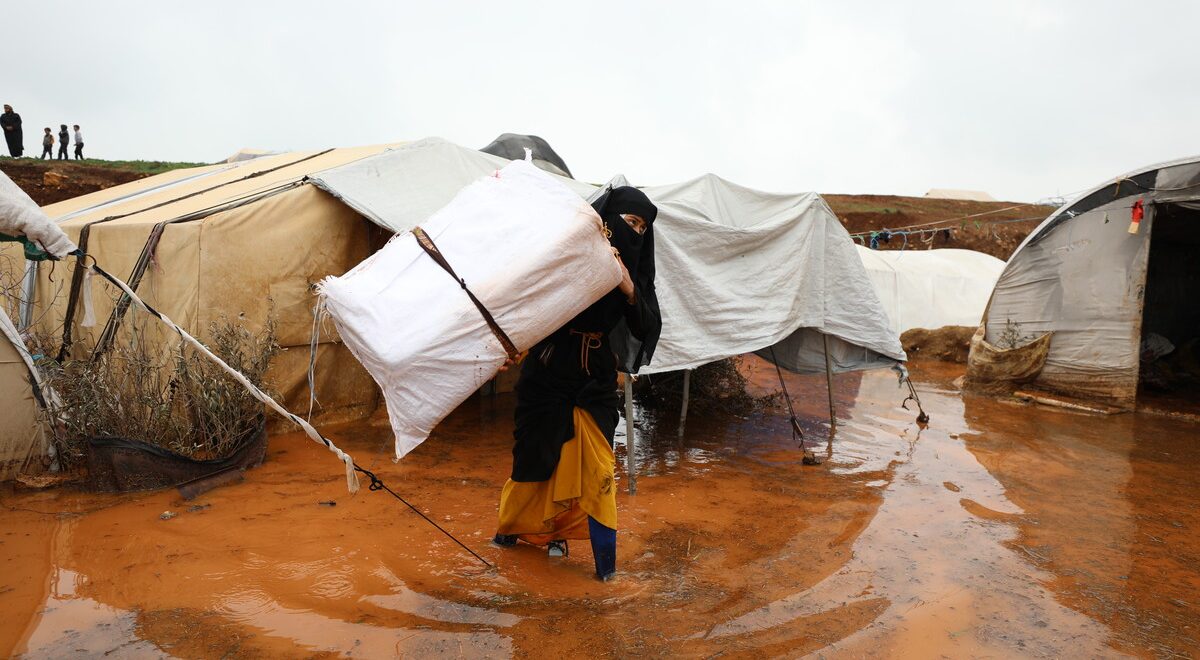Last November, we won a stunning victory at the UN climate negotiations in Egypt, as the world agreed to create a fund to support developing countries in coping with “Loss and Damage” from climate change. What was agreed in Decision 2/CP.27 is merely an empty shell: a promise to create “new funding arrangements” to respond to loss and damage, including a specific fund. A “Transitional Committee” (TC) will meet throughout 2023 – including for the first time next week, March 27-29, back in Egypt – to decide the details of these funding arrangements and the new fund.
No actual money has yet been pledged, and for the United States at least this will be the biggest challenge. And yet – it was still a huge victory, a crucial first step towards a climate justice future in which communities are fairly compensated for the losses they are suffering due to a crisis they had no role in creating. It felt doubly significant for the fact that the United States – long the biggest obstacle to progress on loss & damage – was forced to change its position, something that rarely happens in international negotiations.
The Transitional Committee, with its 24 members (14 representing developing countries and 10 representing developed countries) will be another exercise in negotiations. It has an extremely broad mandate, but some things very clearly must be nailed down before it delivers an outcome to be approved by all countries at this December’s UN climate negotiations in Dubai.
- First and foremost, the TC must prioritize the creation of a framework for the new Loss & Damage Fund – something similar to the Governing Instrument that laid out the basic governance and operational principles of the Green Climate Fund. Developed countries may prefer to discuss other aspects of “funding arrangements” because only the Fund would actually require them to contribute hard cash to poorer countries. But distracting away from the new Fund would be a grave injustice. With only three meetings to get the framework right, this must be the top agenda item for the committee.
- Any other work the TC undertakes must not delay the creation of the new Loss & Damage Fund. Some of the other questions around L&D funding arrangements are important, others less so; all should be secondary to the primary deliverable of a new fund.
- The other questions that are genuinely important include consideration of how L&D funding will be coordinated with humanitarian assistance and other forms of climate finance; discussion of the role of “innovative sources” of finance such as taxes on fossil fuel companies; and analyses of the amount of L&D finance that will be needed based on different global temperature scenarios. These types of questions should be considered in a separate process from the core work of creating the framework of the new L&D fund.
Unfortunately, some questions that will inevitably arise are little more than political distractions. Foremost among these is the question about the “contributor base” and, relatedly, eligibility criteria for who can receive funding. Under the UN Framework Convention on Climate Change (UNFCCC), rich developed countries like the United States, European states, Japan, etc. have the legal responsibility to provide climate finance. But they have long been trying to extend that responsibility to others, especially larger developing countries like China and India.
The Paris Agreement maintains that the rich countries have the obligation to contribute, but invites any other countries to do so on a voluntary basis. This is consistent with UNFCCC principles and with any reasonable calculation of countries’ “fair shares” of climate action based on their historical emissions and national wealth (e.g. the Civil Society Equity Review methodology).
On the flip side, many rich developed countries want to see climate finance flowing only to the most vulnerable and least developed countries. While this is appropriate and ethical to an extent, the exclusion of middle-income developing countries is indefensible. Vulnerable people and communities exist in all developing countries, including in China, India, Latin American countries, and other countries considered “middle-income.” The L&D Fund must be accessible to all developing countries, even if there are some provisions for prioritizing particularly vulnerable countries.
Rich countries, led by the United States, will likely push to “expand the contributor base” and may also seek to contract the recipient base (by excluding marginally wealthier developing countries). While of course voluntary contributions such as from China, which indicated openness to this during COP27, are very much welcome, actually shifting the obligation away from developed countries is ethically unacceptable. Any attempts by wealthy countries to try to renegotiate basic principles of the UNFCCC, including the “contributor base” question, are delay-and-distract tactics that pose risks to the Transitional Committee’s primary work of urgently delivering a new Loss & Damage Fund.
Inexplicably, the first TC meeting is open only to a severely limited number of in-person observers. However, it will be webcast (presumably the link will be posted somewhere on this site) and we will be following the proceedings closely to ensure that the TC keeps its primary objective at the center of its work. Making good on the victory at COP27 means delivering the framework for a new L&D fund at COP28 – nothing less.

